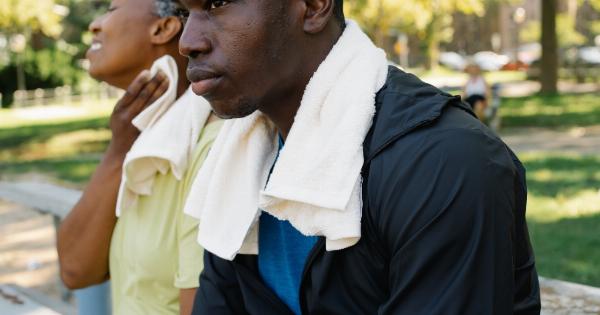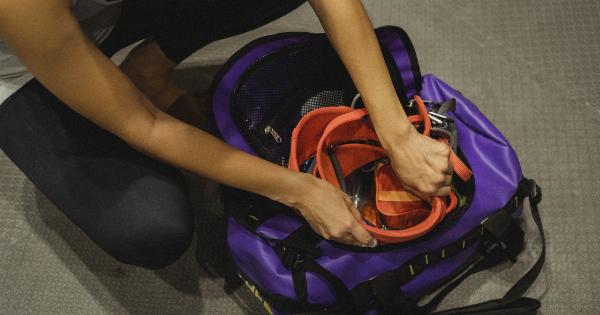Summer is a season that brings joy and excitement to many people. It’s a time for outdoor activities, vacations, and relaxation. However, it’s also a season that can pose some unexpected emergencies.
From heat-related illnesses to outdoor accidents, it’s crucial to be prepared for any unforeseen circumstances that may arise. In this guide, we will explore various summer emergencies and provide you with essential tips on how to deal with them effectively.
1. Heatstroke: Recognizing and Responding
Heatstroke is a severe condition that occurs as a result of prolonged exposure to high temperatures and strong sunlight. It can be life-threatening and requires immediate medical attention.
Some signs of heatstroke include a high body temperature, altered mental state, rapid heartbeat, and flushed skin. If you suspect someone is experiencing heatstroke:.
- Move the person to a shaded or air-conditioned area
- Remove excess clothing and apply cool water to their skin
- Offer sips of water, if conscious and not nauseous
- Call emergency services
2. Sunburn Relief and Prevention
Excessive sun exposure can lead to painful sunburn, which not only causes discomfort but also increases the risk of skin cancer. To prevent sunburn, follow these tips:.
- Apply sunscreen with a high SPF before going outdoors
- Wear protective clothing and a wide-brimmed hat
- Seek shade during peak sun hours (10 am to 4 pm)
- Stay hydrated to maintain healthy skin
If you or someone you know already has sunburn, try these remedies to alleviate discomfort:.
- Apply a cold compress or take a cool bath
- Use aloe vera gel or moisturizing lotions to soothe the skin
- Take over-the-counter pain relievers if needed
3. Swimming Accidents: Drowning Prevention
Summertime often involves swimming in pools, lakes, or oceans. Unfortunately, water-related accidents can occur, especially if safety precautions are not taken seriously. Follow these drowning prevention strategies:.
- Never leave children unattended near water
- Install proper barriers around pools
- Learn CPR and basic water rescue techniques
- Teach children how to swim at an early age
4. Insect Bites and Stings: Relief and Treatment
With warm weather comes an increase in insects like mosquitoes, bees, and wasps. Insect bites and stings can cause irritation and sometimes allergic reactions. Here’s how to deal with them:.
- Wash the affected area with soap and water
- Apply a cold compress to reduce swelling
- Use over-the-counter antihistamines or topical ointments
- Seek medical attention if experiencing severe allergic reactions, such as difficulty breathing or swelling of the face
5. Foodborne Illnesses: Prevention and First Aid
Barbecues and outdoor picnics are popular summer activities, but they also increase the risk of food poisoning. To prevent foodborne illnesses:.
- Keep perishable foods refrigerated until use
- Use separate cutting boards and utensils for raw and cooked foods
- Ensure meat is cooked thoroughly before consumption
- Wash hands frequently while preparing food
If you or someone you know experiences food poisoning symptoms, such as nausea, vomiting, or diarrhea, remember:.
- Stay hydrated by drinking plenty of fluids
- Rest and avoid solid foods until feeling better
- If symptoms persist or worsen, seek medical attention
6. Dehydration: Prevention and Treatment
Hot summer temperatures can lead to dehydration, which can be dangerous if left untreated. Stay hydrated by:.
- Drinking plenty of water throughout the day
- Avoiding excessive alcohol and caffeine consumption
- Eating water-rich foods like fruits and vegetables
If you or someone you know shows signs of dehydration, take these measures:.
- Move to a cool area and rest
- Drink fluids that contain electrolytes (sports drinks or oral rehydration solutions)
- If symptoms worsen, seek medical attention
7. Heat Exhaustion: Identifying and Treating
Heat exhaustion is a common condition caused by prolonged exposure to high temperatures and inadequate fluid intake. It’s essential to recognize the symptoms:.
- Headache, dizziness, and confusion
- Profuse sweating and pale skin
- Nausea or vomiting
- Muscle cramps and weakness
If you suspect heat exhaustion:.
- Move the person to a cool, shaded area
- Loosen or remove tight clothing
- Provide cool water to sip
- Apply cool compresses or use a fan for ventilation
- Monitor the person’s condition and seek medical help if symptoms worsen
8. Allergic Reactions: Anaphylaxis Preparedness
For individuals with severe allergies, summertime can be fraught with potential allergens. Here’s how to be prepared for anaphylactic reactions:.
- Carry an epinephrine autoinjector (e.g., EpiPen) at all times
- Inform friends and family about your allergies
- Wear medical identification jewelry
- If experiencing severe allergic symptoms, administer epinephrine and call emergency services
9. Poisons and Hazardous Plants: Prevention and Treatment
During the summer, certain plants and chemicals can pose a risk of poisoning. Protect yourself and your loved ones by:.
- Learning to identify poisonous plants like poison ivy
- Keeping toxic household products out of reach
- Wearing gloves and proper clothing when working with hazardous materials
- If accidental ingestion or contact occurs, call poison control or seek medical attention immediately
10. Firework Safety: Preventing Accidents
Fireworks are often a highlight of summer celebrations, but they can be dangerous if not handled properly. Follow these safety measures:.






























